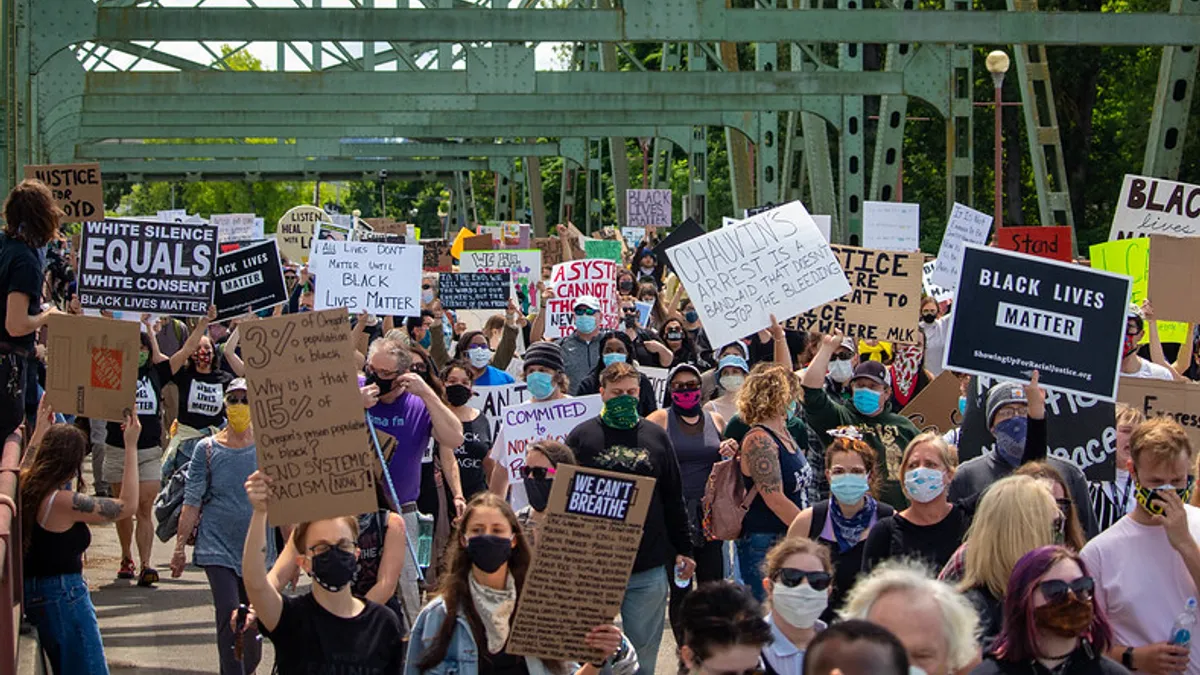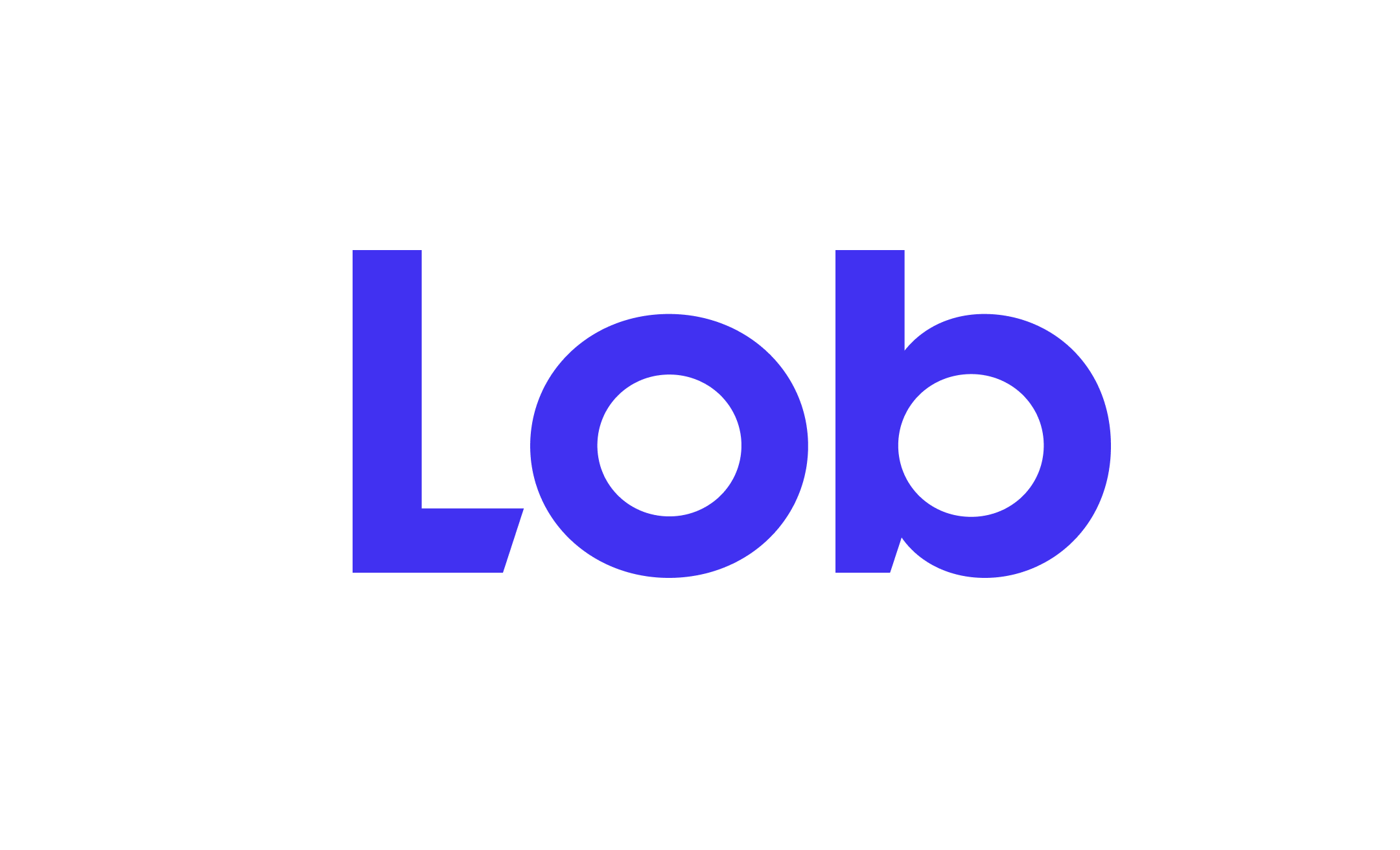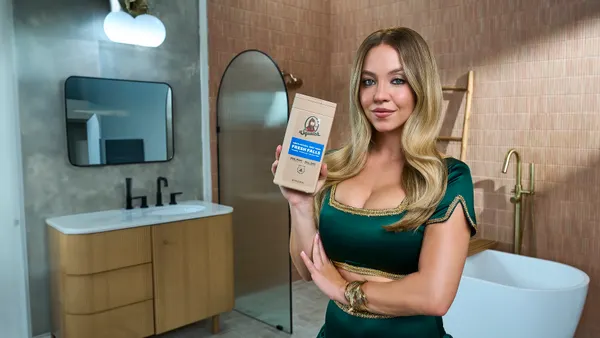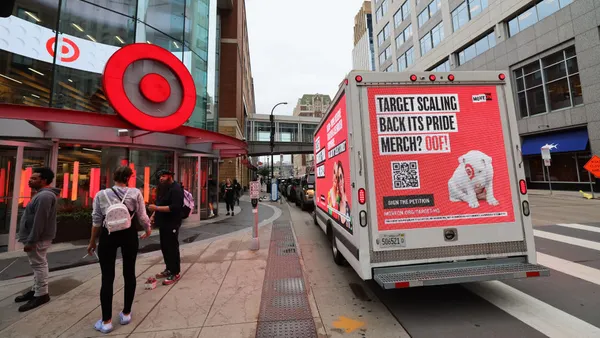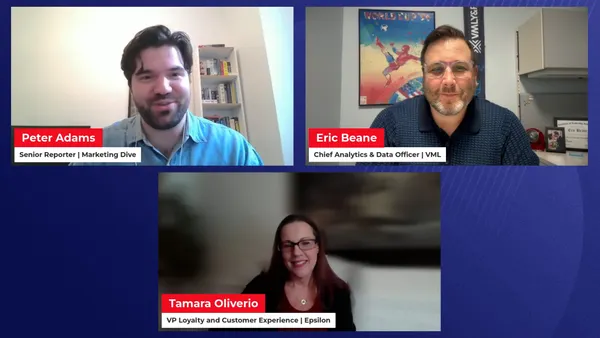Dive Brief:
- As tensions around racial justice increase in the U.S., 68% of consumers expect brands to be clear about their values, according to a report from Kantar Monitor shared with Marketing Dive.
- That number rises depending on a consumer's ethnicity or other demographic group, with 69% of Hispanics, 71% of LGBTQ+, 79% of Asian Americans and 82% of African Americans expecting brands to speak up about where they stand on current societal issues.
- Millennials have the highest expectations for brands to speak out, Kantar found. Forty-six percent of the age group expect brands to be brave, followed by 42% of Gen Z with these expectations. Only 31% of Gen Xers and 22% of Boomers expect brands to take a public stance on social issues. However, African-American Gen Xers have the highest composite score, 46 percentage points higher than white Gen Xers. Similarly, African-American Boomers reported having 42% higher expectations compared to other Boomers.
Dive Insight:
As consumers look for ways to make changes in their own lives to support issues including fighting racial injustices and helping the environment, many see their wallets as a way to help change the world. Kantar's study found this is particularly true among millennial and Gen Z consumers at large, who want to hear a brand's stance around particular issues in order to feel comfortable buying from it.
Leadership's behavior at consumer brands have shown to post both positive and negative effects on sales. Chick-fil-A, for instance, experienced a consumer boycott after the brand's former CEO Tim Tassopoulos took a public anti-LGBTQ+ stance. Since then, the brand has been giving money to LGBTQ+ causes to attempt to reverse some of that damage and win back socially conscious customers. More recently, CrossFit CEO Greg Glassman tweeted controversial comments about the death of George Floyd and subsequent protests around the world. After gyms began dropping CrossFit affiliations in response, Glassman resigned, according to CNN.
Kantar's report also found that 54% of consumers expect brands to take an active role in social conversations about issues like #MeToo and racial injustices. This number averages higher depending on ethnic or cultural demographic, with Hispanics (62%), Asian Americans (65%) and African Americans (71%) in agreement.
Nike and McDonald's are among major brands that have taken a stand on the current calls from consumers to stand up against racism. Nike was one of the first brands to respond in support of Black Lives Matters protests, which rival Adidas retweeted shortly after to show solidarity with the message. McDonald's took a page from protestors' signs and named several black victims of police violence or others. However, the company faced backlash from the NAACP for not offering better protections for its employees, many of whom are black, during the coronavirus pandemic.
Ben & Jerry's made perhaps the strongest stand against police brutality and racial injustices, calling to dismantle white supremacy. The message includes an action plan and calls on President Trump and elected officials to commit "to a formal process of healing and reconciliation."


